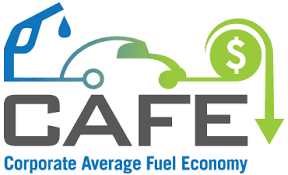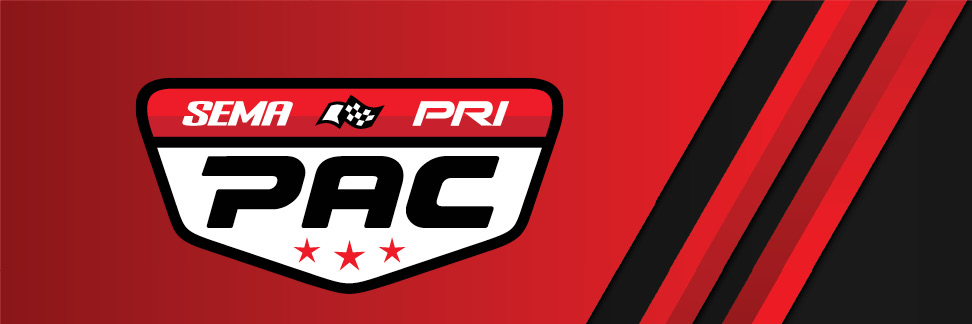
2025 brings major regulatory changes that aftermarket businesses need to watch closely. Here’s a quick summary of what matters most:
Starts April 3 (vehicles), May 3 (parts)
Applies to imports from all countries, with USMCA exemptions
Covers engines, transmissions, electrical parts, etc.
Future expansion likely—Commerce Dept. can add parts within 90 days based on industry requests
FTC’s regulation aimed at transparency in car sales was struck down in court
Dealers are no longer subject to its stricter disclosure rules—for now
FTC clarified: aftermarket add-ons are OK if they offer real value
More chemicals (used in adhesives, coatings, etc.) added to warning list
Enforcement is stricter, pushing manufacturers toward reformulation
Opportunity: eco-friendly brands can gain market share
Federal investment in parks and outdoor infrastructure will boost demand for:
Overlanding gear
Off-road accessories
Eco-conscious upgrades
Aftermarket can benefit by aligning with outdoor and sustainability trends
New inspections required for ADAS features (lane assist, braking, etc.)
Shops must invest in calibration tools
Creates a specialization opportunity for tech-savvy repair shops
Higher MPG targets + EV integration = shift to lighter, more efficient vehicles
Growth areas:
EV accessories
Lightweight and aerodynamic parts
Fuel-saving performance tuners

Date Announced: March 26, 2025
Effective Dates:
Passenger Vehicles & Light Trucks: April 3, 2025
Auto Parts: No later than May 3, 2025
Authority: Section 232 of the Trade Expansion Act of 1962
📄 Presidential Proclamation
📄 Fact Sheet
Products:
Passenger cars, SUVs, crossovers, minivans, cargo vans
Light trucks
Auto parts: engines, transmissions, powertrain parts, electrical components
Note: Specific HTS codes not yet released; expected in a Federal Register notice.
Rate: 25% ad valorem (on top of existing duties)
Applies To: Imports from all countries
USMCA Exception:
Autos: 25% applies only to non-U.S. content (if certified).
Parts: Tariffs delayed while a content-based exemption process is created.
Tariff does not apply to knock-down kits or bundled part compilations.
Within 90 days, domestic manufacturers/industry groups can request more parts to be added.
Commerce will review each request within 60 days.
Ongoing monitoring of import trends will determine whether tariffs remain in place.
| Country/Product | Tariff Rate | Effective Date |
|---|---|---|
| China (IEEPA Tariffs) | 10% → 20% | Feb 4 → Mar 4, 2025 |
| China (Sec. 301) | 25% (Lists 1–3), 7.5% (List 4a) | 2018–2020 |
| Canada (IEEPA) | 25% all goods (Mar 4–6) | Mar 4, 2025 |
| 25% non-USMCA, 10% potash/energy | Mar 7, 2025 | |
| Mexico (IEEPA) | Same structure as Canada | Mar 4 → Mar 7, 2025 |
| Steel/Aluminum | 25% (200% for Russian aluminum) | Mar 12, 2025 |
| Autos & Auto Parts (New) | 25% all countries, USMCA exemptions apply | Apr 3 (autos), May 3 (parts) |
| Target | Potential Tariff | Status |
|---|---|---|
| Chinese maritime/vessels | $500K–$1M per ship | Awaiting agency report |
| Reciprocal tariffs | TBD | Report due April 2 |
| Countries buying Venezuelan oil | 25% | Report due April 2 |
| Copper (all forms) | TBD | Pending |
The May 3 deadline for details on auto parts tariffs is quickly approaching—and it’s a big one for the aftermarket. Over the next few weeks, the landscape could shift significantly. SEMA is actively engaging with the Trump Administration to make sure our industry’s priorities are heard, especially around how these tariffs could affect members’ ability to provide top-tier, American-made products to their customers.
President Trump’s order also opens the door for expanding the list of affected parts. The Secretary of Commerce now has 90 days to create a process for reviewing requests to add more auto parts to the tariff list.
Auto parts manufacturers and industry associations will be allowed to submit these requests if they believe rising imports pose a threat to national security. Once a request is received, the Secretary must consult with the U.S. International Trade Commission and Customs and Border Protection before deciding—within 60 days—whether those parts should face tariffs as well.
In a major win for the auto retail industry, the 5th U.S. Circuit Court of Appeals has struck down the Federal Trade Commission’s (FTC) Combating Auto Retail Scams (CARS) Rule, citing procedural violations in its enactment. The ruling, delivered in favor of the National Automobile Dealers Association (NADA) and the Texas Automobile Dealers Association (TADA), effectively nullifies regulations that were set to impose stricter disclosure and consent requirements on dealerships nationwide.
The now-invalidated rule sought to enhance transparency in vehicle sales by prohibiting deceptive pricing, hidden fees, and misleading financing terms. While consumer advocates praised the initiative, dealers argued that the rule added unnecessary compliance burdens that could disrupt sales processes and increase costs.
Although the FTC has the option to appeal the decision to the Supreme Court, its next steps remain uncertain. For now, dealerships can continue their current sales practices without the immediate threat of additional federal oversight.
One of the unintended consequences of the CARS Rule was confusion surrounding its impact on vehicle customization. Some dealers began restricting aftermarket add-ons—such as window tinting, paint protection, and performance upgrades—out of fear that these products might be deemed “junk fees” under the new regulations. In response, the FTC issued a formal clarification, stating that the rule did not prohibit dealers from offering products that provide real value to consumers.
This means that as long as add-ons are properly disclosed and benefit the buyer, dealerships can continue offering customization services without regulatory pushback. This is welcome news for enthusiasts and everyday buyers alike, as aftermarket upgrades remain a key part of vehicle ownership.
With the CARS Rule now overturned, dealerships regain more flexibility in their sales and financing processes. However, the ruling doesn’t eliminate state-level consumer protection laws or the FTC’s broader authority to regulate unfair business practices. For both dealers and consumers, the key takeaway is that transparency and fair dealing will remain at the heart of a successful automotive sales experience.
California’s Proposition 65, the Safe Drinking Water and Toxic Enforcement Act of 1986, continues to expand its list of regulated chemicals. This law requires businesses to disclose the presence of chemicals known to cause cancer, birth defects, or reproductive harm. In 2025, new chemicals are being added, some of which are commonly found in automotive products like adhesives, cleaners, and coatings.
For detailed updates, visit the California Office of Environmental Health Hazard Assessment (OEHHA).
The Outdoor Recreation Jobs and Economic Impact Act, commonly referred to as the Outdoor Act, aims to promote investment in outdoor recreation infrastructure. It also encourages the production of goods catering to outdoor enthusiasts—a category where the automotive aftermarket thrives.
Learn more at the Outdoor Industry Association.
California is implementing the Vehicle Safety Systems Inspection Program (VSSI) in 2025. This program mandates inspections for advanced driver-assistance systems (ADAS), such as automatic braking and lane-keeping assist.
VSSI ensures that ADAS features function as intended, addressing safety concerns related to poorly calibrated systems. These inspections will apply to vehicles during routine smog checks or annual maintenance reviews.
For more details, visit the California Bureau of Automotive Repair.

The 2025 update to Corporate Average Fuel Economy (CAFE) standards mandates higher fuel efficiency across automotive fleets. These changes impact the aftermarket by shifting consumer preferences toward lighter, more efficient vehicles and eco-friendly accessories.

The Specialty Equipment Market Association (SEMA) and Performance Racing Industry (PRI) PACs are key allies for the aftermarket, protecting the right to modify vehicles and ensuring access to affordable parts.
Get involved with the SEMA Action Network.
Necessary cookies are absolutely essential for the website to function properly. This category only includes cookies that ensures basic functionalities and security features of the website. These cookies do not store any personal information.
Functional cookies help to perform certain functionalities like sharing the content of the website on social media platforms, collect feedbacks, and other third-party features.
Performance cookies are used to understand and analyze the key performance indexes of the website which helps in delivering a better user experience for the visitors.
Analytical cookies are used to understand how visitors interact with the website. These cookies help provide information on metrics the number of visitors, bounce rate, traffic source, etc.
Advertisement cookies are used to provide visitors with relevant ads and marketing campaigns. These cookies track visitors across websites and collect information to provide customized ads.
Other uncategorized cookies are those that are being analyzed and have not been classified into a category as yet.